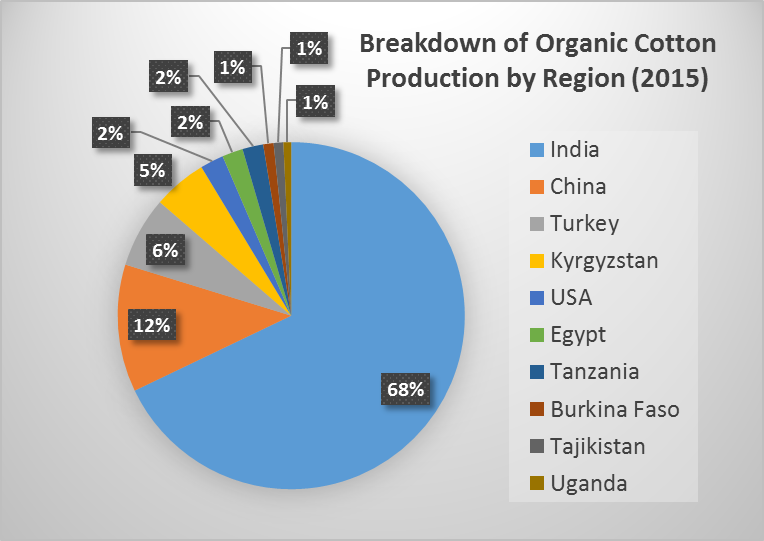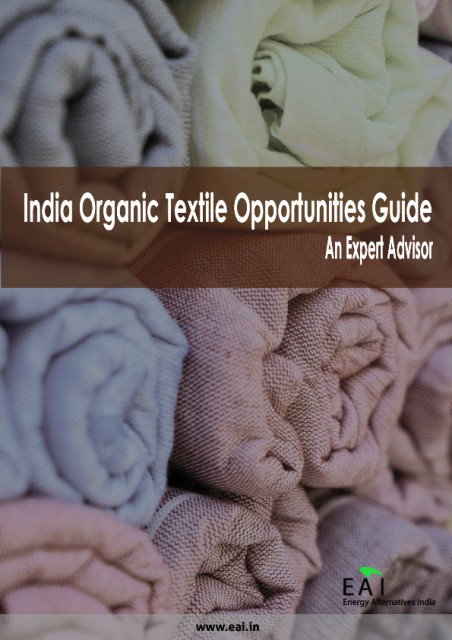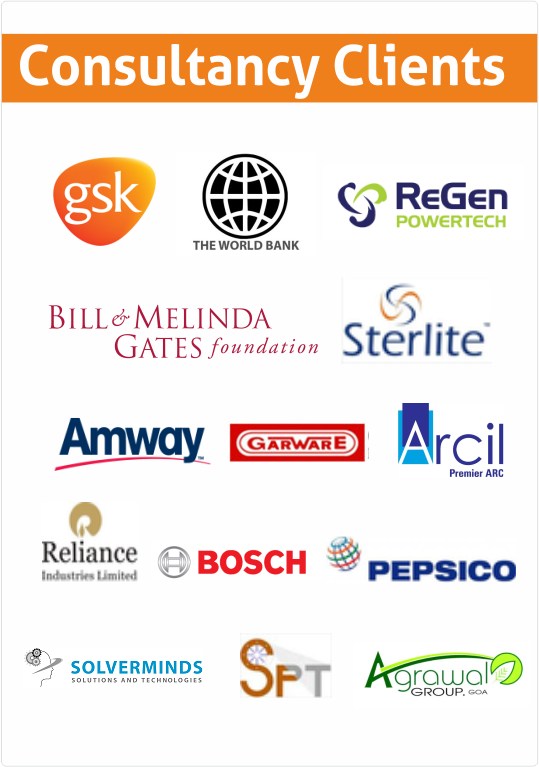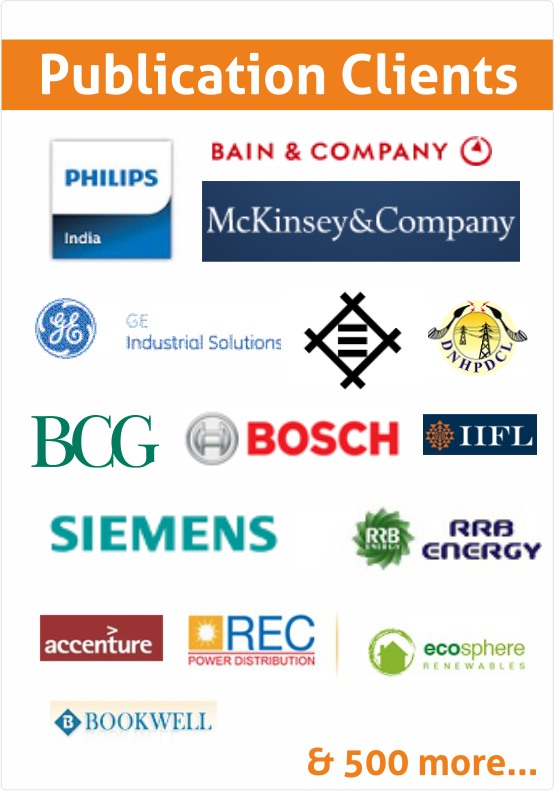India Organic Textile Opportunities Guide
An Expert Advisor
The India Organic Textile Opportunities Guide provides unique insights and market intelligence on business opportunities in the Indian organic textile sector.
To know more about purchasing the Expert Guide: Send an email to Muthukrishnan – muthukrishnan@eai.in
Background
Consumers around the world are interested in buying organic apparels, fabrics, and other related products sans pesticide residue. India, being the largest producer of organic cotton, offers tremendous scope for organic textiles production and exports to countries across the globe. The bulk of organic fibers and textiles produced in India are being consumed by prestigious companies in Europe and the US.
Global Market Study
Nineteen countries worldwide produced organic cotton in 2015-16 producing 116,974 metric tons (MT), with the top five producing countries accounting for 96% of total production. India alone produced 74%, followed by, China, Turkey, Kyrgyzstan, and the U.S.
 Market data collected from Textile Exchange
Market data collected from Textile Exchange
Indian Organic Textiles Market
- India is the 2nd largest global textile manufacturer and 2nd largest producer of natural textile fibers in the world and the major fiber produced is cotton. Other fibers produced in India include silk, jute, wool, and man-made fibers. 60% of the Indian textile industry is cotton-based
- The majority of organic cotton produced in India is processed in the country and exported only as textile. The demand for the product within the country is negligible, mostly because of its high price
The promise of Organic Cotton…
The economically most important organic fiber is cotton. A recent life cycle assessment from Textile Exchange showed that organic cotton is proven to cause less environmental damage than conventional cotton with
- 46% reduced global warming potential
- 70% less acidification potential
- 26% reduced eutrophication potential (soil erosion)
- 91% reduced blue water consumption
- 62% reduced primary energy demand
Practices followed in organic textiles and their benefits –
- No genetically modified organisms (GMO) seeds are used.
- Certain insects, biological and cultural practices are used to control pests.
- Soil remain strong through crop rotations.
- Retains water more efficiently
- Since no pesticides or fertilizers are used, farmers are a lot healthier.
- Controls weed through physical removal rather than chemical destruction.
Despite being a niche market, the market for organic textiles is witnessing significant growth in India. EAI has witnessed this growth trend in organic clothing (made from non-allergic, eco-friendly and durable organic cotton) segment for children. This trend can be attributed to the growing awareness of people towards environment and health issues.
The global organic clothing industry represents just approximately 1% of global consumption. Out of this, India alone accounts for 74% of the production.
About the Guide
The India Organic Textile Opportunities Guide is an expert guide that explores the business opportunities in the Indian organic textile industry. It provides key insights and critical data points that may assist the reader interested in venturing into this domain.

Who should purchase this expert guide?
- Existing textile business interested in diversifying into organic textile
- Large corporates keen on exploring attractive opportunities in the organic textile export market
- Businesses interested in venturing into innovative and promising manufacturing domains
- Entrepreneurs and existing businesses looking to venture into sustainable domains.
Why should you purchase this guide?
- It helps you understand the organic textile industry’s future potential in India and for export market
- It can assist you to identify the emerging business opportunities and quickly take the next steps
- Comprises intelligence and inputs derived from EAI’s interactions with various stakeholders in the textile business community – farmers, textile businesses, consultants, etc.
Key Organic Textile Sectors Covered in the Guide
This report covers data, insights, and recommendations on key organic textile market sectors as listed below:
- Organic cotton – fiber and fabric
- Organic clothing – men’s wear, women’s wear, baby clothes
- Organic home textiles – towels, curtains, pillow covers, bath robes, bath robes
- Organic accessories – shopping bags
- Organic dyes
To know more about purchasing the Expert Guide: Send an email to Muthukrishnan – muthukrishnan@eai.in
India Organic Textile Opportunities Guide – List of Contents
Organic Textile Potential and Growth Trends
- Overview of global organic market
- Market size
- Attractive markets
- Organic Textile Production in India
- Organic Textile potential in India
- Domestic potential
- Export potential
- Indian Organic Textile Export and Import Trade Flow
- Lever’s affecting growth of Organic Textile in India
Organic Textile Market Segmentation
- Classification of market segments
- Based on end-user
- SMEs
- Large corporates
- Institutes
- Based on products
- Organic clothing
- Organic cotton
- Organic home textiles
- Region-wise segmentation
- Based on end-user
This section provides an analysis of various market segments based on the following parameters
- Market size
- Growth rate
- Drivers
- Challenges
- Preference for a particular product
Business Opportunities along the Organic Textile Value Chain
- Overview of the Organic Textile value chain
- Manufacturing opportunities
- Trading opportunities
- Other opportunities – support services and solutions
- Drivers and Challenges associated with various business opportunities
- Costs, Returns, and Margins
- Competitive scenario for organic textile businesses
- # of Competitors
- Profile of key competitors – key strengths, weaknesses, regions served
Policies, Initiatives, and Standards
- Central and State Policies
- Funding Schemes
- Duty Structures
- Industry Standards
- International
- Domestic
Best of Breed Practices
- Supply chain practices
- Quality Assurance and Certifications
- Environmental Impact of Organic Textiles
- Waste Water Treatment
- Storage, Packaging, and Transport
Case Studies
- Case studies on organic textile companies in the Indian market
- Bhusattva
- Anokhi
- Joy of Life
- Do You Speak Green?
- Upasana
- Goodearth
- Natural Mantra
- Nino Bambino
- Samtana
- No Nasties
Purchasing India Organic Textile Opportunities Guide
To know more about purchasing the Expert Guide: Send an email to Muthukrishnan – muthukrishnan@eai.in
PRICE OF REPORT: Rs 32,500 (US $500)
About EAI
EAI (Energy Alternatives India) is India’s leading renewable energy research, consulting, and catalysis firm. EAI runs India’s largest renewable energy website (Eai.in), the country’s largest renewable energy newsletter (EAI Daily) and India’s largest renewable energy community (EAI Club).
EAI’s consulting team has assisted global and Indian blue chip companies in their sustainability efforts. Our consulting clients include the World Bank, Bill & Melinda Gates Foundation, Reliance, La Farge, Vedanta, Tamil Nadu & Karnataka State Governments, MNRE, and more.
The research team has published many globally acclaimed reports across the entire sustainability spectrum. Customers for these reports include over 75 companies from Fortune 500 and over 10 from Fortune 100. The bio-division of EAI runs the world’s foremost resource on algae biofuels, Oilgae and a dedicated resource on deriving sustainable materials from castor oil, CastorOil.in
EAI is headquartered in Chennai, India.
Clients we have assisted –




